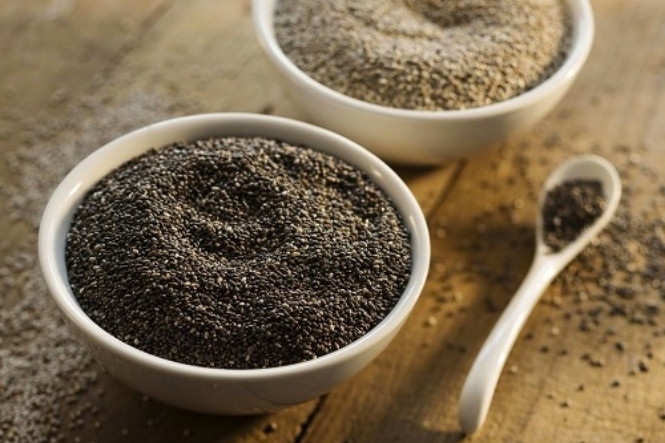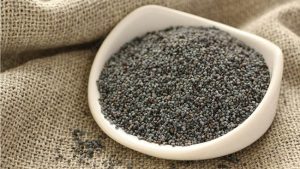
Chia seeds, tiny in size but packed with abundant nutrients, are increasingly asserting their position in the international agricultural market. This article will delve into the journey of chia seed exports, from their origin, growing regions, outstanding nutritional value, potential export value, vast consumer markets, to the delicious dishes prepared from this seed.
1. Origin and Growing Regions:
The chia plant (Salvia hispanica L.) originates from Central and South America, particularly Mexico and Guatemala. Historically, were a crucial food source for the ancient Aztecs and Mayans, used in religious ceremonies, as medicine, and to provide energy for warriors.
Today, chia plants are widely cultivated in many countries around the world, including Mexico, Argentina, Bolivia, Australia, and several Southeast Asian nations, including Vietnam. In Vietnam, chia is mainly grown in regions with hot and dry climates and fertile soil, such as the Central Highlands, the South-Central Coast, and some northern mountainous provinces.

2. Outstanding Nutritional Value:
Chia seeds are hailed as a “superfood” due to their impressive nutritional content. A small serving (about 2 tablespoons – 28 grams).
- Fiber: Approximately 11 grams, accounting for nearly 40% of the recommended daily intake, which helps support digestion, stabilize blood sugar, and lower cholesterol.
- Protein: Approximately 4 grams, providing essential amino acids for the body.
- Omega-3: A rich source of alpha-linolenic acid (ALA), an omega-3 fatty acid beneficial for heart and brain health.
- Antioxidants: Contains numerous powerful antioxidants that help protect cells from damage caused by free radicals.
- Vitamins and Minerals: Rich in calcium, phosphorus, magnesium, manganese, and other important minerals.
Thanks to these nutritional components, chia seeds offer numerous health benefits, such as:
- Supporting cardiovascular health.
- Stabilizing blood sugar levels.
- Enhancing digestive function.
- Aiding in weight management.
- Providing energy and increasing endurance.
3. Potential Export Value:
With proven health benefits and increasing global consumer demand, chia seeds have become a high-value agricultural export commodity. Chia-producing nations have the potential to earn significant foreign currency from exporting these seeds.
The export value of chia seeds depends on various factors such as seed quality, processing methods, packaging, branding, and market fluctuations. Organic chia seed products and value-added processed chia products often command higher export prices.
4. Vast Export Markets:
The chia seed export market is continuously expanding with the growing interest of consumers in many countries worldwide. Key import markets include:
- North America: The United States and Canada are the largest consumers, with high demand from the food and beverage industry, as well as health-conscious consumers.
- Europe: Countries such as Germany, the United Kingdom, France, and the Netherlands also have increasing import demands.
- Australia: While a producer, Australia is also a significant consumer market.
- Asia: Emerging markets like Japan, South Korea, China, and Southeast Asian countries are showing significant growth potential.
5. Delicious Dishes Made from Chia Seeds:
- Chia Pudding: A popular dessert made by soaking chia seeds in milk (usually fresh milk, almond milk, or coconut milk) overnight, creating a smooth, gel-like mixture. Fresh fruits, nuts, honey, or syrup can be added to enhance the flavor
- Smoothies and Juices: Adding chia seeds to smoothies or fruit juices boosts fiber and omega-3 content.
- Salads: Sprinkling chia seeds on salads adds a crunchy texture and nutritional value.
- Baking and Cereals: Chia seeds can be added to bread dough, cookies, granola, or breakfast cereals.
- Vegan Dishes: Chia seeds have excellent binding properties when soaked in water and can be used as an egg substitute in some vegan recipes.
- Chia Seed Jam: When soaked with mashed fruit, chia seeds create a naturally thick mixture, making a delicious and nutritious jam.
6. Conclusion:
Chia seed exports are not only a promising economic opportunity but also a bridge bringing excellent nutritional values to consumers worldwide. With clear origins, outstanding nutritional value, vast markets, and versatile culinary applications, chia seeds are poised to continue solidifying their position on the international agricultural map, benefiting both producers and consumers. To effectively harness this potential, producing nations need to focus on product quality, brand building, and the development of efficient distribution channels.
Other articles:
Other agricultural products:


